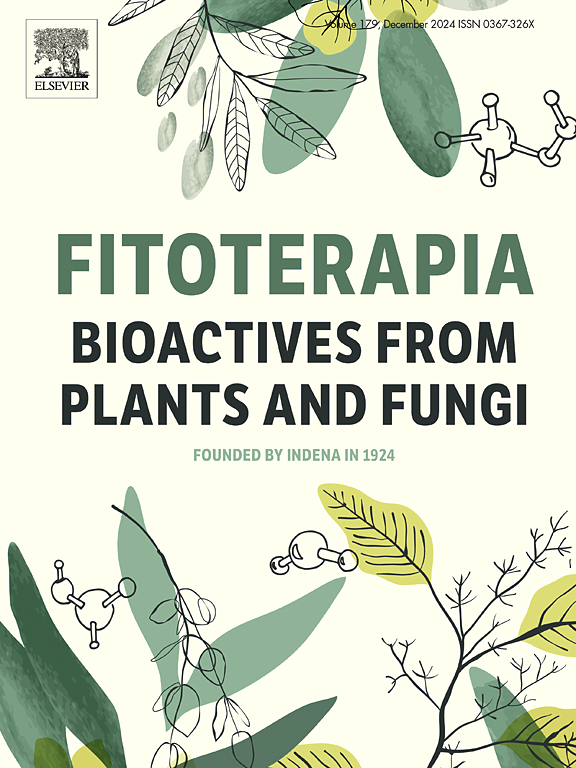萜类介导的宫颈癌细胞凋亡:机制、进展与展望。
IF 2.5
3区 医学
Q3 CHEMISTRY, MEDICINAL
引用次数: 0
摘要
背景:宫颈癌仍然是全球妇女中最常见的恶性肿瘤之一,每年造成数十万人死亡。尽管开展了广泛的疫苗接种和筛查项目,但宫颈癌在发展中国家的发病率仍然很高。目的:系统总结现有有效预防宫颈癌的萜类化合物,阐明其预防和治疗宫颈癌的潜在机制,并对现有研究的局限性进行评价。结果:研究表明,萜类化合物可通过多种信号通路,包括PI3K/AKT通路、内质网应激(endoplasmic reticulum stress, ERS)通路以及线粒体和caspase依赖性细胞死亡通路,降低宫颈癌发病率,促进癌细胞凋亡。此外,一些萜类化合物已被发现可以提高化疗药物的敏感性,从而改善患者的生活质量。结论:萜类化合物对宫颈癌的发展有明显的抑制作用。然而,由于其多样性和复杂的作用机制,需要进一步研究其特异性靶点和生物活性,以推进其临床试验和应用。本文章由计算机程序翻译,如有差异,请以英文原文为准。

Terpenoids mediated cell apoptotsis in cervical cancer: Mechanisms, advances and prospects
Background
Cervical cancer remains one of the most common malignancies among women globally, causing hundreds of thousands of deaths annually. Despite widespread vaccination and screening programs, the incidence of cervical cancer remains high in developing countries.
Objective
This review aims to systematically summarize the existing terpenoids effective in preventing cervical cancer, elucidate their potential mechanisms in the prophylaxis and treatment of cervical cancer, and assess the limitations of current studies.
Results
Studies have shown that terpenoids can decrease the incidence of cervical cancer and promote apoptosis of cancer cells through various signaling pathways, including the PI3K/AKT pathway, the endoplasmic reticulum stress (ERS) pathway, and the mitochondria- and caspase-dependent cell death pathways. Furthermore, some terpenoids have been found to enhance the sensitivity to chemotherapy drugs, thus improving patients' quality of life.
Conclusion
Terpenoids play a significant role in inhibiting the progression of cervical cancer. However, due to their diversity and complex mechanisms of action, further research is necessary to investigate their specific targets and bioactivities to advance their clinical trials and applications.
求助全文
通过发布文献求助,成功后即可免费获取论文全文。
去求助
来源期刊

Fitoterapia
医学-药学
CiteScore
5.80
自引率
2.90%
发文量
198
审稿时长
1.5 months
期刊介绍:
Fitoterapia is a Journal dedicated to medicinal plants and to bioactive natural products of plant origin. It publishes original contributions in seven major areas:
1. Characterization of active ingredients of medicinal plants
2. Development of standardization method for bioactive plant extracts and natural products
3. Identification of bioactivity in plant extracts
4. Identification of targets and mechanism of activity of plant extracts
5. Production and genomic characterization of medicinal plants biomass
6. Chemistry and biochemistry of bioactive natural products of plant origin
7. Critical reviews of the historical, clinical and legal status of medicinal plants, and accounts on topical issues.
 求助内容:
求助内容: 应助结果提醒方式:
应助结果提醒方式:


